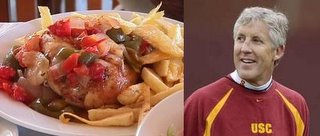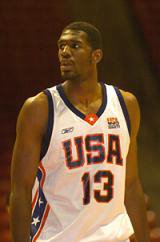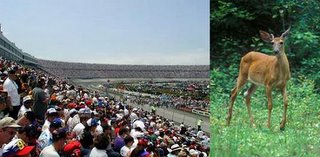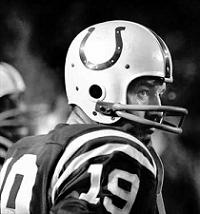Over the weekend, the
LA Times featured an article outlining the debate between fantasy baseball leagues and Major League Baseball. In essence, MLB is claiming a right to the intellectual property of player statistics and is demanding that fantasy leagues obtain a license to use these stats. One fantasy league has responded by suing MLB, seeking a declaratory judgment that baseball has no right to the statistics. The issue, of course is money -- specifically the hundreds of millions of dollars spent on fantasy sports each year.
Sixteen million Americans played these games during 2004, spending about $200 million on league registration fees, according to the Fantasy Sports Trade Assn. Some leagues now offer a $100,000 grand prize.
CBC argues that it has a right to use statistics without obtaining a license.
"What we're dealing with is historical data," said attorney Rudy Telscher, who represents CBC. "The minute a game is over, these are historical facts. And, to my way of thinking, the public ought to be able to use historical facts without having to compensate players or the league."
The 1st Amendment protects the right of media companies and others to use game statistics to tell the story of a game from the first pitch to the last out, or from tipoff to final buzzer.
Baseball, in court filings, maintains that intellectual property law makes it illegal for the fantasy league operator to "commercially exploit the identities and statistical profiles" of big league players.
(Johnson, "Suing over Statistics," LA Times,
01/02/06). MLB does not appear to have a strong argument in this case. While the recordings of the games themselves are protected, statistics are just one way of reporting what happened in the game, only using numbers instead of words. And what of the many statistical formulas that were invented by Bill James of Stats, Inc., and Pete Palmer of Total Baseball? Can MLB claim ownership of these stats?
MLB's case appears to be another attempt to abuse intellectual property law for monetary reasons. Intellectual property is not "real" property -- it is not owned. It should be a license granted by the law to reward inventors and creators and give them a temporary right to capitalize on their creation and thus, encourage more creation. MLB has not created anything in this case, so why should the law allow the league to profit?
UPDATE: As Alan Schwarz points out in the
comments and in his excellent article in Legal Affairs ("$tats,"
Nov/Dec 2005), the issue is whether the players' names can be associated with the statistics for commercial gain. This legal question, termed the 'right of publicity,' allows celebrities to prevent their names and likenesses being used without permission for commercial gain.
One example is the Yogi Berra v. TBS lawsuit from last year (
2/2/05) (the suit dealt with other issues as well). Another is the suit between Tiger Woods and an artist that depicted him in a painting of historical golf moments, discussed in a
4/1/05 post.
This leads me to another question: what if the fantasy leagues did not use a player's name or a likeness? For instance, what if my fantasy NBA team had LAL #8 and CLE #23, along with the associated stats? Would this violate the right of publicity? There are certainly celebrities associated with those numbers, but is this enough? And if so, where is the line drawn between the right of publicity and the right to gain from public information?









